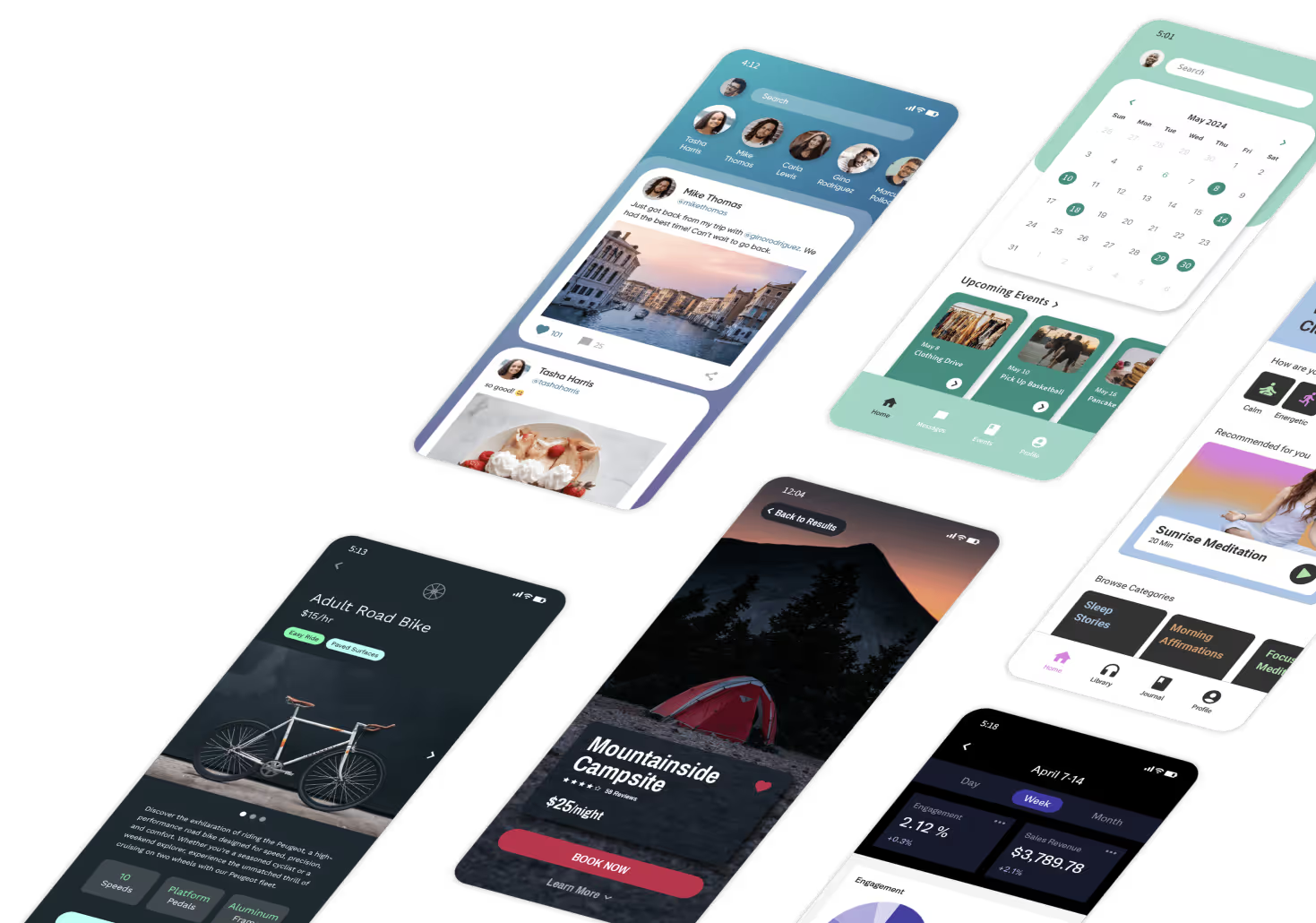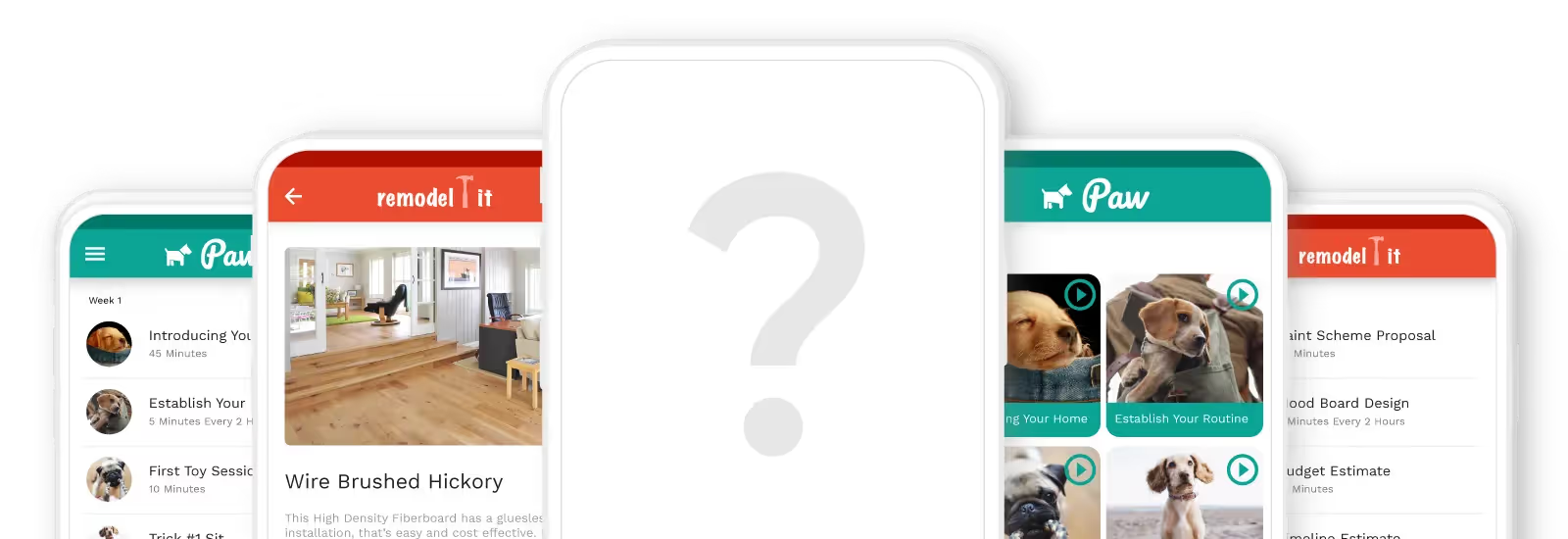
Is Appian the low-code platform your company needs? Appian provides plenty of customization options for large companies, but the platform can get expensive.
Read on to learn more about:
- An intro to Appian and how its building interface works
- Key features like AI power, scalability, and more
- Pros and cons of Appian
- Use cases and if Appian is right for you
- Next steps with Adalo, a top Appian alternative
Now, let’s give a brief overview of Appian.
What is Appian?

Appian is a low-code web app builder for larger organizations and enterprises. Its specific purpose is to build internal business apps, like those to manage clients and projects, ERP systems, automate redundant tasks, and much more.
Because it’s a low-code platform, it requires some technical skills, such as knowledge of APIs and how to add database schema markup.
Appian is mainly designed for large businesses in the financial services, government, insurance, and manufacturing sectors — you’ll find specific templates and tools catered to each industry.
How Does Appian Work?
Appian lets you create all 3 parts of your app — your frontend, backend, and database. This is a convenient offering, as some low-code web app builders only provide the tools for creating a backend or frontend, meaning you’ll need to import a database from another platform.
Let’s briefly walk through the Appian’s building interface.
Building Interface 1: Database and Backend
Appian’s building interface, Appian Designer, is where you create your app. Press the “Create Application” button at the top of your screen, name your app, provide a brief description of the tasks this app will execute, and click the “Create” box.
You can also opt to create folders for permissions and security. This lets you grant certain members of your organization viewing or editing permissions.
Next, follow the dialogue box to connect your database to Appian. The platform integrates with a long list of database providers, like Oracle, Mongo DB, MySQL, and many more. It can also use data from cloud accounts and ERP services like Microsoft Azure, Oracle ERP, and others.
No database, no problem — you can create your data model using Appian’s Data Server. Like most database builders, this tool lets you customize all your data, markup your schema, and relate it to other databases.
Once your database is ready, click the “Actions” button to begin building your backend. You can configure APIs, CRUD executions, and more to customize how your users will interact with your app’s data.
Building Interface 2: The Frontend
Now, it’s time to create your user interface or frontend. This is the part of your app that your users will interact with.
First, select “Build View” in Appian Designer, and you’ll see a long list of forms and templates to choose from. For instance, you’ll find forms and templates for CRM tools, KPIs, data management, automations, etc.
After you pick a form or template, you can customize it using Appian’s drag-and-drop interface. On your screen’s left-hand side, you’ll see a long list of actions and layouts that you can use to add functionalities to your app, like a signature add-on, barcode scanner, loads of graphs and charts, and much more.
Appian Onboarding and Support
While Appian doesn’t have a free version, you can contact the sales team directly from their website and set up a free demo. This should familiarize you with some of the main functions of the building interface while providing a place to answer any questions.
If you choose Appian, the team will provide an onboarding session to get you off to the races. And, if you run into any speedbumps along the way, Appian provides you with 2 dedicated support contacts who can see you through.
Appian: Key Features
Here are some of the main functionalities that Appian showcases:
Ecosystem
While Appian is a bit of a doozy because it requires some low-code background knowledge and some time to nail down the building interface. Luckily, the Appian staff realizes this and provides a thriving ecosystem of resources to help you master the building interface.
For instance, you’ll get access to the Appian Academy, which offers courses covering everything you need to know about Appian. You can also visit Appian’s Community YouTube Channel, which provides loads of videos about creating specific apps and much more.
You can even showcase your Appian skills by earning some of Appian’s professional certifications. Not only do these demonstrate competency in the system, but you can also use them to pursue a career or side hustle as an Appian developer.
Robust AI
Appian leverages its AI tool, Appian AI, to bolster app building. It can help generate code for creating new frontend features like specialized widgets, images, and more. The AI tools can also ensure all records are accurate and your schema stays properly structured.
Additionally, Appian AI integrates with Google Cloud, AWS, and Microsoft Azure. This allows you to easily incorporate advanced AI functionalities such as image recognition, natural language processing, and predictive analytics into your apps, adding jet fuel to their functionalities.
Enterprise-Oriented: On-prem Power and Security
Appian allows you to run and deploy your apps on-prem (on your own servers). This gives you complete control over your data, security, scalability, and compliance. You can rest easily that your app is entirely under your control, as it will be located on a server inside your building.
If you’re handling sensitive data, Appian has your back. Appian is HIPAA compliant, allowing you to manage personal health information legally while safeguarding patient privacy. Additionally, Appian’s SOC 2 Type II compliance demonstrates its adherence to high standards for managing customer data with security, confidentiality, and privacy.
Appian’s Highlights and Hangups
Let’s take a look at some of Appian’s pros and cons:
Pros of Using Appian
- Customizable: You can build loads of internal business apps with various functions catered to your precise needs, all using Appian’s low-code building interface.
So, if you’re looking for a platform to create internal tools, give Appian a spot on your shortlist.
- Enterprise Focus: With integrations to major databases, cloud services, and ERP providers, Appian is built to meet the specific needs of enterprises.
You can also run your app on-prem, a significant selling point for companies with their own servers, as on-prem deployment allows an array of security and scalability features.
- Leading AI: Appian’s AI will let you create your apps in less time and help you maintain your database and run a functional backend. This is a significant plus if you’re dealing with enormous amounts of data daily and must ensure everything goes in the right place.
Cons of Using Appian
- Learning Curve: Appian’s first barrier to entry is that you need to have a tech background. Additionally, while super powerful, the platform itself is very complex, so you’ll need to dedicate some time to get it down.
- High Cost: It goes without saying, but Appian’s pricing is aimed at enterprise users, and you’ll most likely pay $1,000s monthly. This essentially makes Appian a no-go for medium businesses and under.
- Not Flexible: While Appian provides an excellent platform for creating internal business tools, it’s not intended for building external, client-facing apps, like those for social media, appointment booking, shopping, and more.
Who is Appian Best Suited For?
Appian is mainly for large organizations requiring rapid app development to execute business processes and applications across various domains. Its security offerings, advanced AI features, and many integrations make it a solid choice for large-scale finance, healthcare, government, and insurance companies.
Is Appian Right for You?
Appian’s a super powerful app builder, but it’s not for everyone. Consider the following to decide if Appian is the best fit for your needs:
- You’re a large organization, enterprise, or Fortune 500: If you’re one of these organizations, you most likely need to build several different apps to meet the needs of a constantly changing team, clientele, product portfolio, and more. Appian provides a viable solution, as you’ll get a customized plan with features to meet your needs.
However, small- to medium-sized businesses probably won’t need the robust features that Appian provides.
- You have tech skills: Appian is indeed a complex low-code app builder. As a prerequisite, you’ll need to know basic concepts, like programming logic, how to build a backend, some SQL knowledge, and more. When you start with Appian, learning how to use the interface will take some time.
- You need to create client-facing apps: Unfortunately, Appian isn’t an excellent choice for organizations that need to develop client-facing apps accessed by anonymous users for table booking, e-commerce, and more.
Ultimately, if you don’t yet count yourself as an enterprise, it’s a good idea to check out other app-building platforms similar to Appian.
'{{rich-cta}}'
Adalo: An Excellent Appian Alternative

Not a large organization and still need an app builder? Adalo’s an excellent choice.
Adalo is a no-code native mobile app builder that lets you create nearly any app you can imagine — for your business KPIs, restaurant, online shop, or anything else. Choose from about 40 templates, and customize your app’s layout, structure, and color using Adalo’s simple drag-and-drop interface.
Unlike Appian, you won’t need any tech skills to use Adalo. Adalo lets you publish your app on the web, in the Apple App Store, and the Google Play Store, so you can genuinely market to the masses. Build an app for free and publish it to the web today with Adalo.














